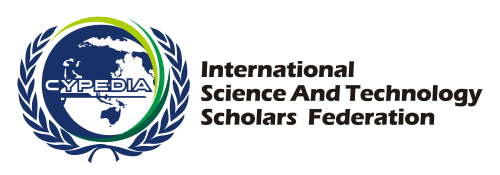Interpersonal Trust in the Era of Scientific Communication with Artificial Intelligence—An Essay

Abstract
Interpersonal trust is a fundamental pillar in the process of learning and delving deeper into various topics of interest, with people frequently seeking the support of scientific communicators. These professionals hold the responsibility of making complex concepts and scientific jargon accessible to a non-specialized audience. In the current scenario, the integration of Artificial Intelligence-based tools in scientific communication offers significant potential to optimize content production, both textual and visual, accelerating the cycle of informational material creation and elevating the efficiency in knowledge dissemination.
However, this essay delves into the inherent risks to trust in AI-mediated scientific communication and discusses the potential risk of alienating the public interested in science due to the excessive or uncritical use of AI by communicators, especially when human curation and critical evaluation are ignored. Public trust can be compromised if they perceive that the content does not stem from the communicator's human knowledge, but rather from an artificial tool, generating a sense of deception and treachery. Transparency regarding AI use, the maintenance of human curation, and rigorous ethical oversight are essential elements to leverage the benefits of AI without compromising the human element and the trust people place in scientific communicators. The essay advocates for a careful balance, where AI acts as a supportive tool to enhance the capacity of human communicators, and not as an integral substitute for judgment, ethics, and authenticity in the dissemination of scientific knowledge.
Keywords
Essay, Interpersonal Trust, Scientific Communication, Artificial Intelligence in Communication
References
- [1] de Queiroz Monteiro, P.F.H., da Costa Lemos, A.H., 2024. The career trajectory of digital influencers. Dialogue with the Creative Economy. 9(25). DOI: https://doi.org/10.22398/2525-2828.925113-130 (in Portuguese)
- [2] Almeida, V., Nas, E., 2024. Challenges of responsible AI in scientific research. Revista USP. (141), 17–28. (in Portuguese)
- [3] de Azevedo, A.C.V., da Silva, A.M.B., Monteiro, J.S., et al., 2022. Scientific dissemination in the context of artificial intelligence through Instagram. Proceeding Series of the Brazilian Society of Computational and Applied Mathematics. 9(1). (in Portuguese)
- [4] de Melo Lustosa, M., Farias, M.G.G., de Farias, G.B., 2024. Artificial intelligence and scientific communication: a systematic review. Brazilian Journal of Information Science. (18), 4. (in Portuguese)
- [5] Spinak, E., 2023. Artificial intelligence and research communication. SciELO em Perspectiva. 30. (in Portuguese)
- [6] Cruz, F.B., 2024. Artificial intelligence and the internet: a look at user content and its moderation. Revista USP. (141), 65–80. (in Portuguese)
- [7] Costa, A.H.R., Cozman, F.G., 2024. The future of artificial intelligence research. Revista USP. (141), 133–146. (in Portuguese)
- [8] do Valle, L.R., de Andrade, T.H.N., 2022. Scientific communication as a field. Revista Tecnologia e Sociedade. 18(50), 230–242. (in Portuguese)
- [9] Ribeiro, R.J., Sobral, F., 2023. Science and Artificial Intelligence. Jornal da Ciência - SBPC. 1(804), 2. (in Portuguese)
- [10] Marinho, R. I., Marinho, J. R., Marinho, J. R., 2011. Editorial Principles of the Globo Group. Rio de Janeiro. 6. (in Portuguese)
- [11] Generative ai policies for journals. Elsevier: Amsterdam, The Netherlands.
- [12] Submission and peer review policies. IEEE: Piscataway, NJ, USA.
- [13] Baker, K., 2023. Springer nature introduces curie, its aipowered scientific writing assistant. Spring Nature: Berlin, Germany.
- [14] dos Santos Conceição, V.A., Chagas, A.M., 2020. Researchers and scientific communication in the context of cyberculture and artificial intelligence. Acta Scientiarum. Education. 42. DOI: https://doi.org/10.4025/actascieduc.v42i1.52879 (in Portuguese)
- [15] Metag, J., 2024. Aiscicomm24. discussing the role of (generative) ai for science communication research and science communication practice. Journal of Science Communication. 23(5), R02.
- [16] Gasque, K.C.G.D., 2020. Perceptions and strategies related to “confirmation bias” by researchers in the process of searching for and using information. Em Questão, 27, 12. (in Portuguese)
- [17] Costa, L., Miranda, S., 2024. Senior digital influencers on TikTok: profiles and communication strategies. Comunicação Pública. 19(36). DOI: https://doi.org/10.34629/cpublica817 (in Portuguese)
- [18] Ha, L., Abuljadail, M., Ali, H., et al., 2024. Behind the screens behind the screens insights from digital content creators understanding their intentions, practices and challenge. UNESCO: Paris, France.
